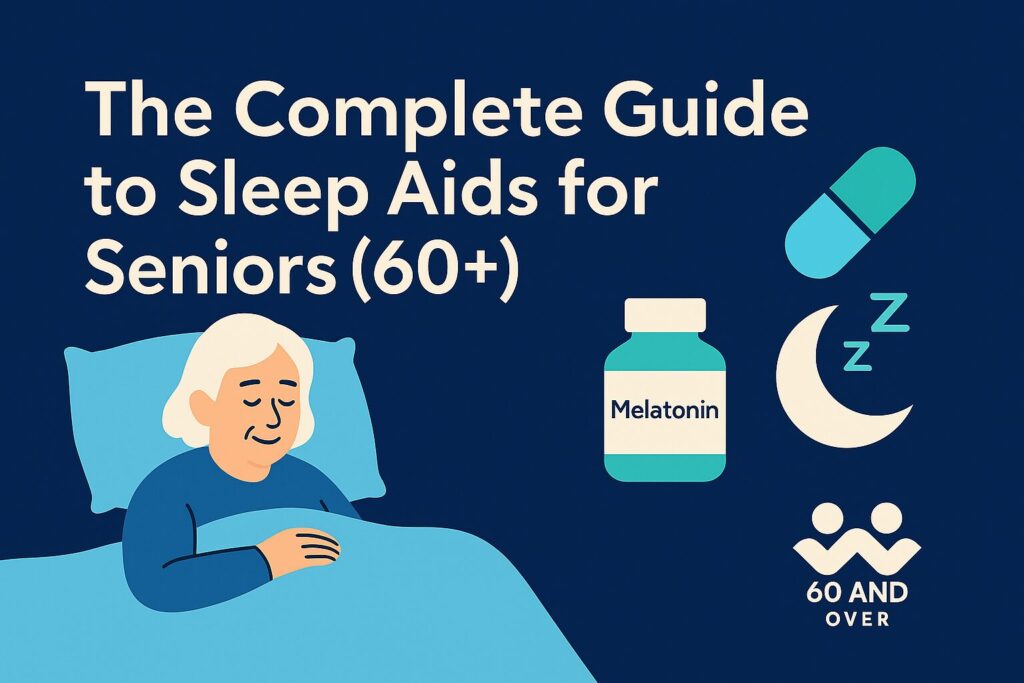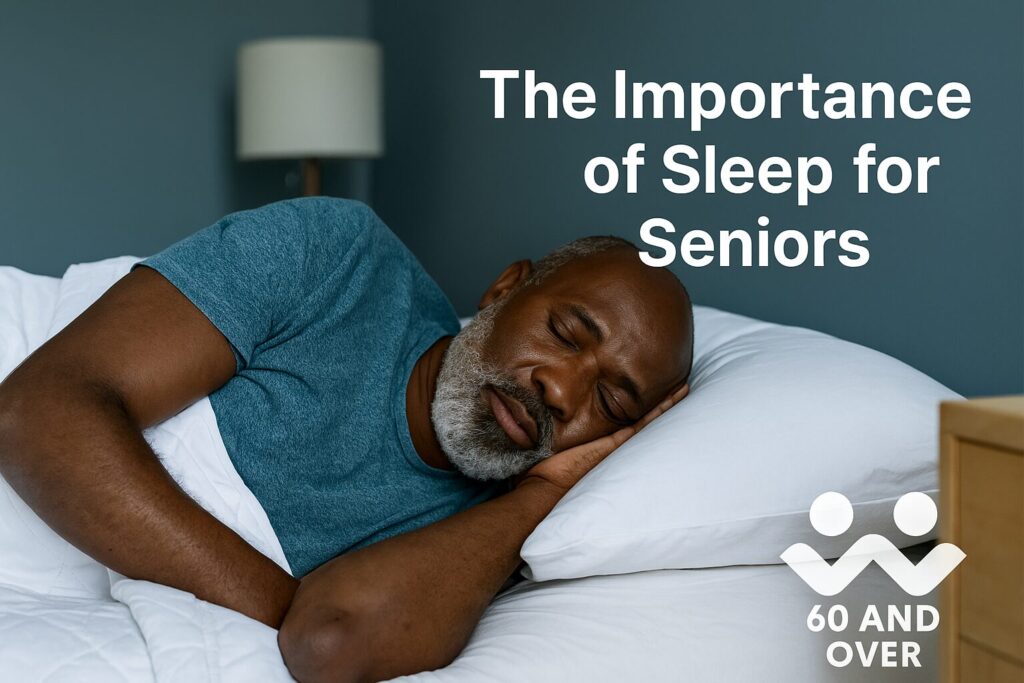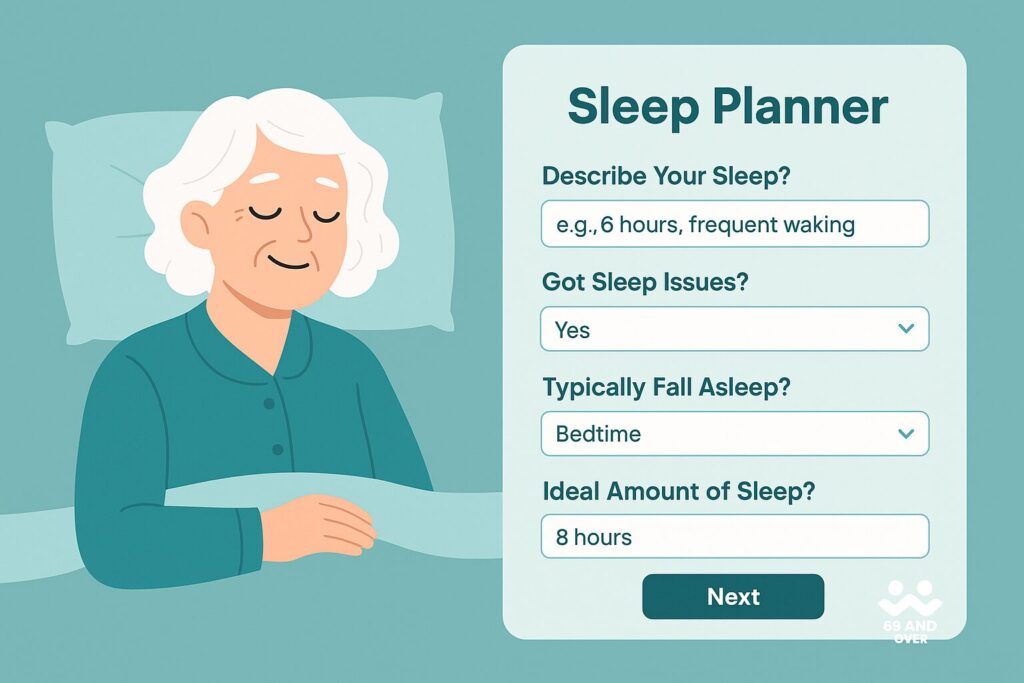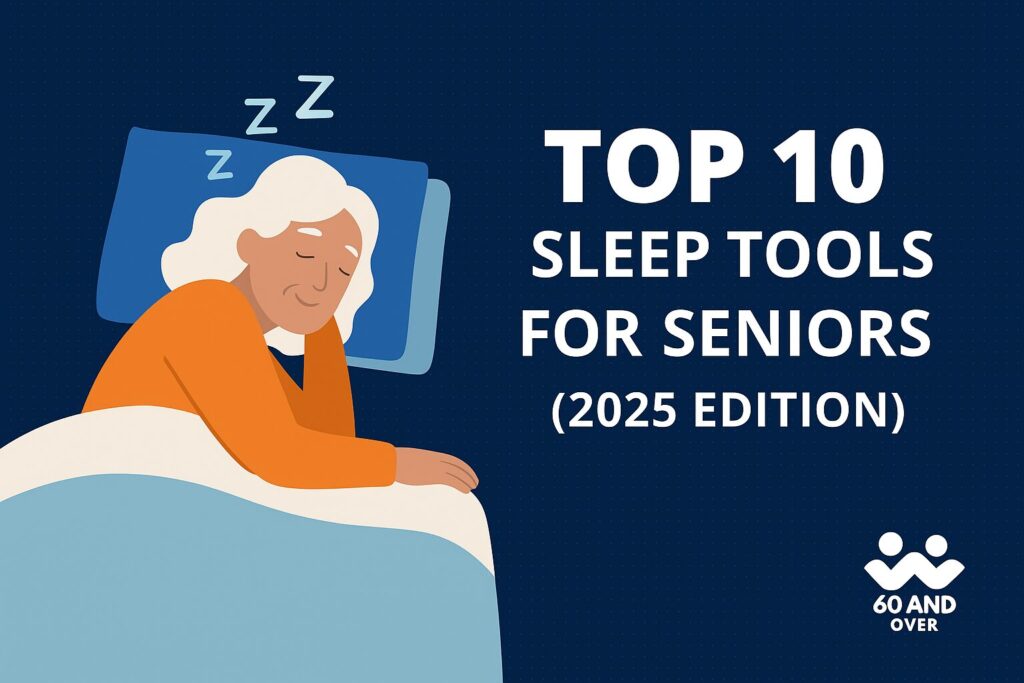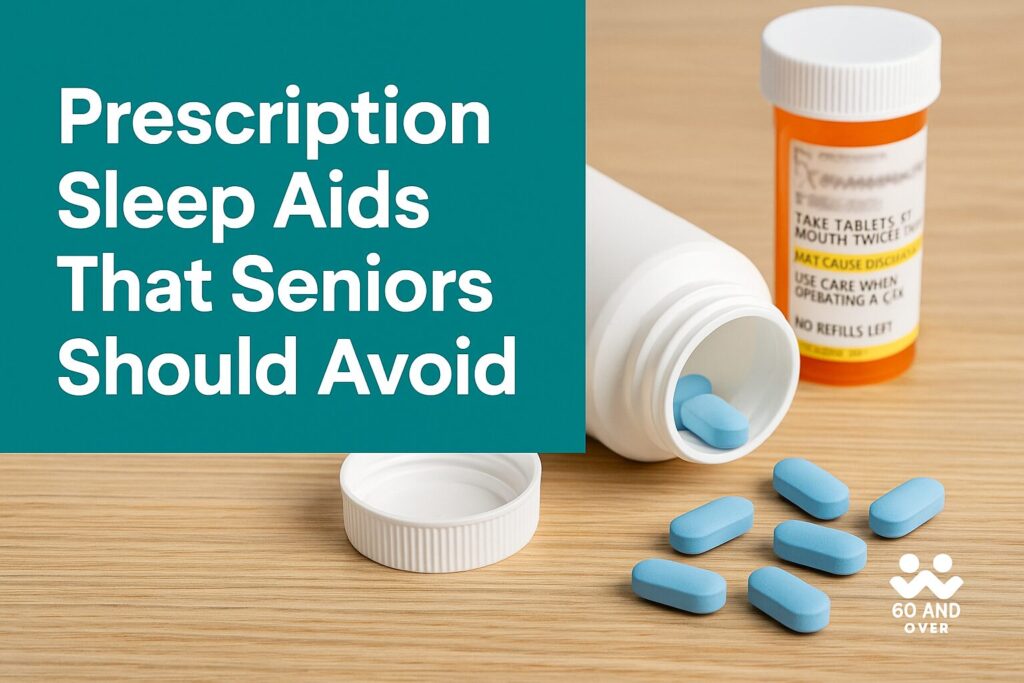Exploring Safe, Effective Choices for Better Rest After 60
Sleep troubles become more common with age. Many seniors find themselves lying awake at night, waking too early, or struggling with poor-quality rest. While the desire for a “quick fix” leads many older adults toward pills or supplements, the reality is that not all sleep aids are safe after 60. Some options increase fall risk, confusion, and memory problems, while others can truly support healthier sleep patterns.
This guide explores the best sleep aids for seniors over 60, focusing on safer, evidence-based solutions — from behavioral strategies to supplements, and when necessary, prescription options.
Why Sleep Problems Are Common After 60
Aging affects sleep in several ways:
- Reduced melatonin production makes it harder to fall asleep.
- Medical conditions (arthritis, diabetes, heart disease) can cause nighttime discomfort.
- Medications may interfere with sleep quality.
- Changes in circadian rhythm make some older adults “early birds,” leading to early waking.
Because of these factors, the best sleep aid for one senior may not work for another. Safety, side effects, and overall health need to guide the choice.
1. Cognitive Behavioral Therapy for Insomnia (CBT-I)
Why it’s safe: CBT-I is the gold-standard treatment for chronic insomnia. Instead of masking symptoms, it retrains the mind and body to develop healthier sleep patterns.
How it works:
- Restructures negative thoughts about sleep.
- Builds consistent bedtime routines.
- Uses strategies like sleep restriction and stimulus control.
Pros: No side effects, long-lasting results.
Cons: Requires commitment and may not be instantly effective.
Our take: For seniors willing to try a structured program, CBT-I is one of the most effective, safest sleep aids available.
2. Sleep Hygiene and Lifestyle Adjustments
Why it’s safe: Lifestyle habits can make or break sleep quality — and adjustments are risk-free.
Key strategies:
- Stick to a consistent bedtime and wake time.
- Keep the bedroom cool, dark, and quiet.
- Limit caffeine and alcohol, especially late in the day.
- Use relaxing pre-bed routines (reading, gentle stretching, herbal tea).
Our take: These changes should be the first step before trying supplements or medications.
3. Melatonin Supplements
Why it’s safe: At low doses (0.3–2 mg), melatonin can help seniors fall asleep by mimicking the body’s natural hormone.
Helps with:
- Sleep-onset insomnia.
- Jet lag or circadian rhythm issues.
Risks for seniors: Morning grogginess or dizziness at higher doses.
Who should avoid: Seniors with diabetes, blood pressure problems, or those on blood thinners (doctor approval needed).
Our take: Melatonin is one of the safest over-the-counter options when used properly.
4. Magnesium
Why it’s safe: Magnesium plays a role in muscle relaxation and nervous system regulation. Deficiency can worsen sleep problems.
Sources: Spinach, almonds, pumpkin seeds, or supplements (like magnesium glycinate).
Risks for seniors: High doses can cause diarrhea; not recommended for those with kidney disease.
Our take: Magnesium is worth trying, especially for seniors with restless sleep or muscle cramps at night.
5. Valerian Root
Why it’s considered: An herbal supplement often promoted for sleep.
Evidence: Mixed — some seniors report benefits, but studies show modest results.
Risks: May cause headaches or stomach upset; avoid with other sedatives.
Our take: Not as reliable as melatonin or magnesium, but can be tried cautiously if doctor-approved.
6. Light Therapy
Why it’s safe: Bright-light exposure in the morning can reset the body clock, especially for seniors who fall asleep too early and wake before dawn.
How it works: Use a light box for 20–40 minutes in the morning.
Risks: Rare eye strain; not suitable for seniors with eye conditions like macular degeneration without approval.
Our take: Best for seniors struggling with circadian rhythm shifts.
7. Low-Dose Doxepin (Prescription Option)
Why it’s safer: At 3–6 mg, doxepin is FDA-approved for insomnia and considered safe for older adults. It helps with staying asleep without major cognitive side effects.
Risks: Dry mouth, dizziness, or constipation in some seniors.
Who should avoid: Seniors with glaucoma, urinary retention, or severe liver disease.
Our take: One of the safest prescription sleep aids if non-drug strategies don’t work.
8. Ramelteon (Prescription Option)
Why it’s safer: Mimics melatonin, helping with sleep onset without habit-forming effects.
Risks: Dizziness, nausea, or fatigue.
Who should avoid: Seniors with severe liver disease or those taking fluvoxamine.
Our take: A good prescription option for seniors who can’t fall asleep, but less effective for staying asleep.
Sleep Aids Seniors Should Avoid
Some options carry high risks for older adults and should be avoided unless no alternatives exist:
- Benzodiazepines (Valium, Restoril, Ativan) – High risk of falls, confusion, dependence.
- Z-Drugs (Ambien, Lunesta, Sonata) – Can cause confusion, falls, and unusual behaviors like sleepwalking.
- Diphenhydramine/Doxylamine (Benadryl, Tylenol PM, Unisom) – Anticholinergic effects linked to memory decline and dementia risk.
- Barbiturates – Rarely prescribed today, but unsafe due to overdose risk.
Conclusion
The best sleep aid for seniors over 60 is rarely found in a pill bottle alone. For most older adults, the foundation should be good sleep hygiene, CBT-I, and lifestyle adjustments. Safe supplements like melatonin and magnesium may help, and when needed, low-dose doxepin or ramelteon can provide prescription support.
Avoiding high-risk medications is just as important as choosing safe ones. With the right approach, seniors can enjoy healthier, more restorative sleep — and the improved energy, focus, and well-being that come with it.
The Complete Guide to Sleep Aids for Seniors (60+): Frequently Asked Questions
Q: What is the safest sleep aid for seniors?
A: The safest options for seniors are usually non-drug approaches like Cognitive Behavioral Therapy for Insomnia (CBT-I) and sleep hygiene. Low-dose melatonin or magnesium may also help.
Q: Are over-the-counter sleep aids safe for older adults?
A: Some are safe in low doses, such as melatonin or magnesium. Others, like antihistamines found in “PM” medications, are not recommended for seniors because they increase the risk of confusion and falls.
Q: Can seniors take melatonin every night?
A: Many seniors can use low-dose melatonin safely. However, higher doses may cause grogginess or dizziness. Always check with a healthcare provider for long-term use.
Q: What prescription sleep aids are safer for seniors?
A: Low-dose doxepin (3–6 mg) and ramelteon are considered safer prescription options. They are non-habit forming and carry fewer cognitive risks compared to benzodiazepines or Z-drugs.
Q: Which sleep aids should seniors avoid?
A: Seniors should avoid benzodiazepines (like Valium or Restoril), Z-drugs (Ambien, Lunesta), barbiturates, and diphenhydramine-based “PM” products because of high risks of confusion, falls, and memory issues.

